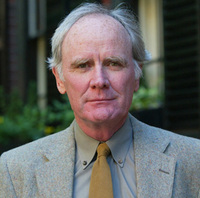Some scientists are starting to think so.
From Tuesday’s New York Times:
Biologists are beginning to form a generally sunnier view of humankind. Their conclusions are derived in part from testing very young children, and partly from comparing human children with those of chimpanzees, hoping that the differences will point to what is distinctively human.
The somewhat surprising answer at which some biologists have arrived is that babies are innately sociable and helpful to others. Of course every animal must to some extent be selfish to survive. But the biologists also see in humans a natural willingness to help.
When infants 18 months old see an unrelated adult whose hands are full and who needs assistance opening a door or picking up a dropped clothespin, they will immediately help, Michael Tomasello writes in “Why We Cooperate,” a book published in October. Dr. Tomasello, a developmental psychologist, is co-director of the Max Planck Institute for Evolutionary Anthropology in Leipzig, Germany.
The helping behavior seems to be innate because it appears so early and before many parents start teaching children the rules of polite behavior.
“It’s probably safe to assume that they haven’t been explicitly and directly taught to do this,” said Elizabeth Spelke, a developmental psychologist at Harvard. “On the other hand, they’ve had lots of opportunities to experience acts of helping by others. I think the jury is out on the innateness question.”
But Dr. Tomasello finds the helping is not enhanced by rewards, suggesting that it is not influenced by training. It seems to occur across cultures that have different timetables for teaching social rules. And helping behavior can even be seen in infant chimpanzees under the right experimental conditions. For all these reasons, Dr. Tomasello concludes that helping is a natural inclination, not something imposed by parents or culture.
Check out the link for the rest.

